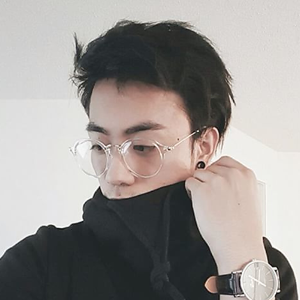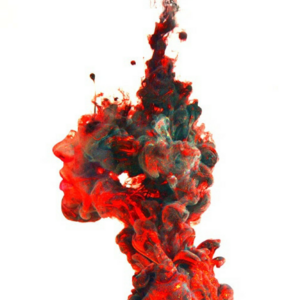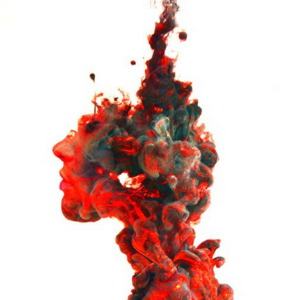Yang didn’t sleep.
“We’ll be there soon,” the farmer said. Yang nodded, his bones cold, his skin speckled with goose bumps, his form catatonic.
They had been travelling for the better part of a day and night. Yang glanced up at the fading night sky. In the distance, he could still see the smoke rising from Canton. What had he returned to? For the first time, Yang doubted his fierce passion to return to China – what if England had been safer?
He instantly rejected the thought. He would not live in the land of savages, he would rather die here, with his people.
“Who are you?” asked the farmer.
“Tian Yang Yu,” answered Yang; the name tasting foreign on his tongue.
The farmer stiffened, and turned to face him. The farmer’s face was dirty with sand and white whiskers grew in patches around his face. “Tian Yang Yu,” the farmer repeated with wonder, enouncing each syllable with the proper pronunciation. Not like Maya. Maya who couldn’t even alter her voice to accommodate Chinese tones. He wouldn’t think of her. It hurt his heart.
“Tian Tao Jiao’s son?” the farmer asked.
Yang’s eyes widened. “You know my father?”
The old man grinned. “I own the farm somewhat away from your –”
“The strawberry farm?” interrupted Yang; eyes shining with excitement. For the first time in what seemed like an eternity, Yang allowed himself a smidgen of hope – of home.
The farmer smiled; the familiarity of family emblazoned on his sandy face: “It is good that you are home,” the farmer said – his name – forgotten but glimmering like a diamond somewhere in the recesses of Yang’s mind. “The matter will be resolved more easily now.”
If things are too good to be true; it probably isn’t.
“Matters?” Yang echoed, brows furrowed.
The farmer’s smile dimmed into a grimace. He lifted a dusty hand from the horse’s reigns to shield his eyes from the sun. The horse brayed – a demonic sound. “You will find out when we reach Beisha1.” The farmer’s voice drained of emotion and he stared ahead, motionless.
Yang looked to the rolling plains; the kilometres gradually being eaten by the tired horse. The horse was a strange one – unlike any Yang had ever seen before. Granted, his experience lay mainly with the thick skinned Arabian stallions2 the English favoured so heavily. This horse was not a stallion – it would not cart dreadful weights or turn heads or win races; it was a farm mule. Something was wrong with it, though, it was almost…vicious – wild. Its black eyes gleamed with an uncharacteristic beastliness. When the horse brayed, the sound was sickening – deafening – and foam gathered at its mouth; stinking faintly of rawness and manure. The horse’s brown hide – though it looked more like fur – was thick and littered with cultures of bugs and bacteria.
Crows cawed overhead. The English word for many crows together tasting foul on his tongue – ‘murder’. Yang swallowed his curiosity.
The horse glanced back with bloodthirsty black eyes.
Perhaps it was a result of Yang’s close acquaintance with bad luck, that he sensed an imminent reconciliation – he would meet this particular friend again. Yang shivered; a dull chill accosting him – his fear impervious to the heat.
“Are you cold?” asked the farmer, sounding puzzled.
Yang studied the farmer for anything remotely suspicious. Then he berated himself for doing so: what was he doing doubting his own countrymen? Was he that jaded? He willed the cynicism away – his past experience would not draw on his present’s joy. Never mind that said joy was evaporating beneath the scalding Canton dawn. “I’m fine,” said Yang, and closed his eyes for a moment, allowing the journey to pass by.
The glimmer became more prominent, and most suddenly, like a crashing tide, it came to wake. “Qian Qiao Bo,” Yang whispered, recognition coursing through him. “Bo shushu3.”
“You’re remembering,” said the farmer. “That’s good.”
He muttered something that sounded like ‘that will make things easier,’ but as soon as the words passed the farmer’s lips, they escaped Yang’s ears. Yang – caught up in his sudden outburst – was too concerned with picking up the fragments of his memory, that had come to him with such force, he was momentarily taken aback. All his Chinese memories were unclear – as though he were experiencing them through a sheen veil or someone else’s eyes, Yang was completely displaced from the person he used to be - the likely result of a year’s repression.
Yang felt as though he were in the process of being woven into a dream. Any startle or sleight and he might be shaken awake by the crashing of waves – still aboard the Yunnan, still a daydream away. He was home, he realised with passing delight; the reality still settling on him. He was home. How long had he dreamt of this moment? How long had he chased the fleeting possibility away, dismissing it for being merely a slave’s aspiration, a hope, a faraway pipe dream? Yang was not a slave anymore, he would not be doubted or laughed at – he was home. There would be no monsters lurking in the cellars of the houses and no skull soup boiling over the fires. It was almost too good to be true. Almost.
If it’s too good to be true, then it probably isn’t.
This was not a dream, Yang assured himself repeatedly. He’d never be able to recall China with such clarity: the sweet smell of poppy; the glowing morning sun; the sheer virescent of the grass; the all-encompassing mountains; the sprawling meadows; the clear Chinese intonations…no, this was beyond his imaginative capabilities. Not even his wildest dreams would conjure this up in such aching detail. He was truly here; he could never have ideated the horrors of Canton anyway – what had happened there? What had happened to the bustling port city he knew? Under siege, engulfed in violence and British hostility; Yang’s second home had been plundered and reduced to screams and ash.
It was strange – being back, but Yang was nevertheless glad.
“If you don’t mind my asking,” said the farmer. “Where have you been? Your family searched for you for a long time.”
Yang ignored the shiver that ran down his spine. Should he? Shouldn’t he? “I was…captured,” he admitted.
“By the ghost men?” asked the farmer – Qian Qiao Bo – Yang needed to get used to that. Qiao Bo looked different after a year; withered by age and war and sun.
“Yes,” he said. “By the ghost men.”
Something sparkled in the farmer’s dark eyes, something that made the man’s mud stained hands tighten around the reigns and the slightest inclination of a smirk passed his lips. “Where did they take you?”
Yang blinked. Once. Twice. And just like that, as though a trick of the sunlight, the signs were gone. The farmer’s face was the epitome of distant concern, and his posture relaxed. The farmer’s grubby clothing – a torn blue tunic that fell to his knees, and his loose matching navy trousers, rolled up his calf, his feet bare – made Yang self-conscious. He glanced down at his cotton shirt – uncomfortably reminiscent of English fashions…he’d grown too used to it to switch to the Indian kurtas, or the salwar kameez2. But it was not his foreign clothes that drew the interest of the farmer and those passing by, but his sheared hair. Yang’s hair – while having experienced enough growth to fall into his eyes and over the tips of his ears – was short. In China, hair was honour. Hair was filial. And the act of cutting one’s hair was regarded as an insult to one’s parents.
Yang tried to ignore the farmer’s looks. “I can’t remember,” he said after the longest pause.
Qian Qiao Bo looked ahead, but something in his pose told Yang that the old man did not believe him. Yang wouldn’t have either.
“Were you found by one of the search parties?”
Yang could see his hometown coming in view. His heart began to thump wildly. The thatched roofs and chimney smoke echoing into the sea blue sky. He was in Beisha once again. His family’s farm was right on the outskirts – a ranch with pens for the hens and sheep and goat.
“Yu Yang?”
Yang’s attention snapped back to the farmer. “No, I was not,” and string around his heart tugged. Yang longed to see his mother’s face once more – he would tell her he regretted running to Canton because he thought dock work was more profitable than milking goats. He would vow to his father that he planned to take over the farm with an unbeatable resolve – he would repair the equipment when it broke, and plough the fields and awake at the crack of dawn. Yang had learned his lesson.
“Come eat dinner with my wife and I,” the farmer offered.
Yang’s eyebrows knitted together. “I appreciate the sentiment,” he said. “But I’d like to see my family.”
The farmer’s lips thinned. “I think it’s best we stop at my house first,” he pushed. Warning bells started chiming in Yang’s head.
There was nothing Yang could do to stop the farmer from halting the cart wherever he wanted to. The Qian Farm was much closer than the Tian Farm, which was further in – nearer to the town.
Gradually, they passed the strawberry fields – small spouts of green with shots of pale pink hiding between the leaves – and rolled to a standstill outside of a small, dilapidated brick home.
“Come,” said the farmer. “Have some water. We must discuss something.”
Straining his eyes, Yang could make out the outline of his home far into the horizon. A steady stream of dirty people exited through the front the door and confusion made Yang’s heart beat faster. The farmer stood on the dusty porch steps, his eyes heavy lidded and tired. “Come,” he said again.
And Yang had enough foresight and experience to know he was about to run into the old friend he had ran away from in two countries before: bad luck.
1. Fictional Chinese town – I think.
2. Traditional clothing for Indian men











Comments (0)
See all